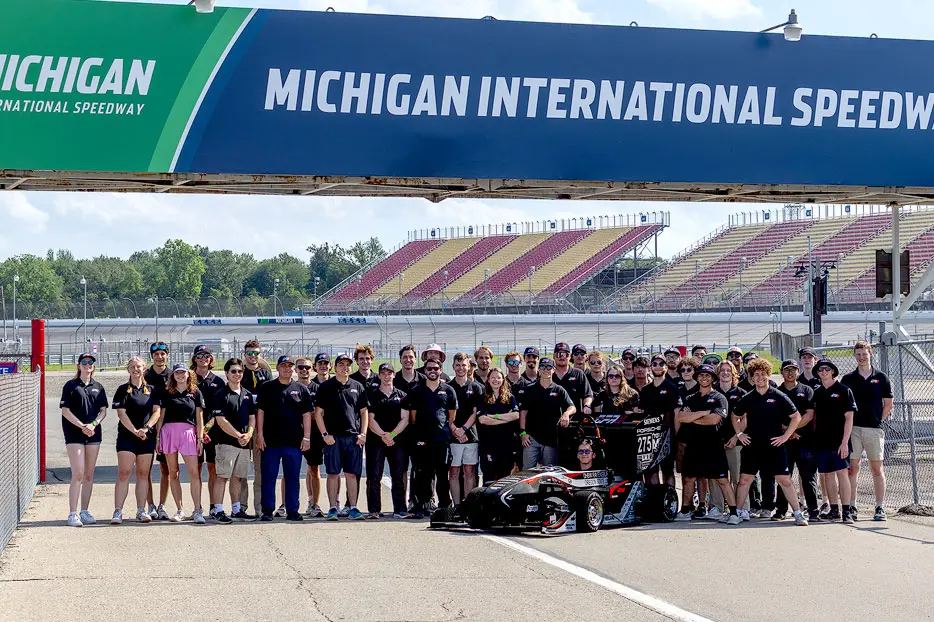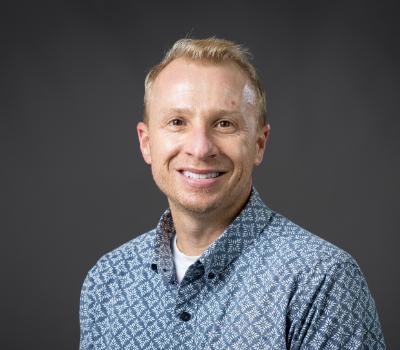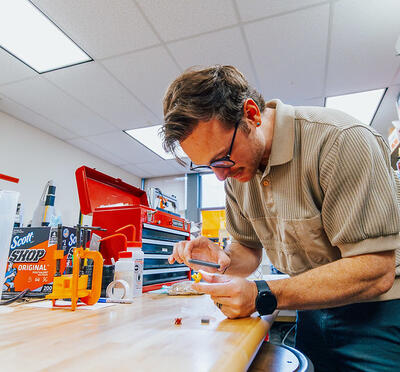In July, Global Formula Racing, Oregon State University’s and DHBW-Ravensburg’s collaborative Formula SAE team, secured the top spot at the 2025 FSAE Electric competition in Michigan, kicking off their first race of a season defined by innovation, resilience, and global teamwork.
The team placed in the top five in every dynamic event, including a first-place finish in skidpad, and advanced to the Design Finals — an honor reserved for teams with the greatest technical understanding of their vehicle. The win reflects not only the strength of this year’s car, but also the depth of collaboration between students at Oregon State and their counterparts at the German university DHBW-Ravensburg.
16 years of international collaboration
Founded in 2009, GFR is an exemplary international engineering team. Students from both universities work across nine time zones and more than 8,700 kilometers, sharing design, manufacturing, and testing responsibilities, and coordinating a complex supply chain that spans continents.
“This kind of collaboration is what prepares students for the future of engineering,” said Joe Piacenza, GFR’s faculty advisor. “They’re not just building a car; they’re building the skills to lead global teams.”
Devin Pham, B.S. mechanical engineering ’23, M.S. ’25, the team’s former captain, said the international collaboration has given him opportunities he would not have experienced otherwise. “I’ve been able to explore the world, build friendships across continents, and collaborate with teammates who bring unique backgrounds and perspectives.”
Training the next generation of electric vehicle engineers
GFR is more than a student competition team — it’s a training ground for the next generation of electric vehicle engineers. By working on high-performance, autonomous-capable electric race cars, students gain hands-on experience in systems integration — including machine learning and artificial intelligence, battery design, software development, and advanced manufacturing. The program’s emphasis on real-world collaboration, rapid iteration, and digital engineering tools prepares graduates to step directly into roles at leading automotive, aerospace, and clean tech companies, forming a growing pipeline of urgently needed talent.
“GFR has been the practical application of everything I learned in my classes and more,” said Eris Solomon, B.S. mechanical engineering and manufacturing engineering ’23, M.S. mechanical engineering ’25. “Between participating in the entire design, from manufacturing to validation cycle, as well as having access to industry advisors, GFR was crucial in cementing the theoretical engineering principles. It is tactical proof of the worth of my degree.”
A special season of racing
After their championship win in Michigan, GFR continued their season over the summer in Europe, competing at Formula Student Austria and Formula Student Germany. In Austria, the team entered every event and successfully drove in all dynamic categories, but reliability issues prevented the team from scoring competitively.
Germany marked a strong finish to the season. Following extensive testing and validation, the team completed all manually driven events without issue — an accomplishment that highlighted the car’s improved reliability and the team’s resilience.
“I've been with the team since before our most recent total vehicle redesign in 2023, and to watch the team go from our struggles in the 2023 and 2024 seasons to winning first place at FSAE Michigan 2025 was the most fulfilling moment of my academic and engineering career thus far,” Solomon said. “Being able to say that I was a part of this amazing team and help make it what it is today is something I will be proud of for the rest of my life.”

GFR also earned special recognition at Formula Student Germany, receiving a historical trophy honoring the team’s early contributions to the competition. In addition, Siemens presented the team with the Siemens Digital Twin Award, celebrating their innovative use of simulation and modeling tools and their commitment to cross-border collaboration.
“This season has been a testament to the hard work, creativity, and perseverance of our students,” Piacenza said. “It’s also a reflection of the alumni, sponsors, and advisors who continue to support this program year after year.”
As GFR looks ahead, the 2026 season presents another opportunity to further the team’s legacy — one that blends technical excellence, global partnership, and a shared drive to push the boundaries of both autonomous and driven electric vehicle design.




